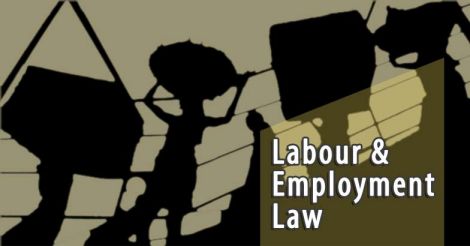All those who attended a meeting convened by the central government's Labour Department to discuss changes to labour laws believe that the government is acting in haste. The special committee's suggestions to restructure labour laws were often conflicting and has left both employers and employees unhappy.
All the 12 labour unions in India believe that the reforms would not be beneficial for the worker while employers feel that more has to be done in the draft in order to safeguard their interests. While they are happy that reforms are being implemented, they have also called for more clarity in the provisions of the bill.
All labour unions have said that the draft in its current form cannot be accepted. They feel that if discussions were to be given priority to evolve reforms, it should have started much before the draft was written. All they need is reforms in line with international rules and norms.
The effort of the government is to integrate 44 core central labour laws into five. Already a draft for compensation is ready. Efforts are on to reform the 1926 labour union law, the industrial appointment rule of 1946 and a law that deals with industrial disputes (1947). Other laws concerning health and security, social security and service norms are being prepared.
While no one is against reforming rules that have become archaic, reforming them for the sake of investors is what most are against. Discussions on compensation underscored this sentiment. Even though most of the suggestions in the first round were opposed by unions, they were demanded by employers. Most of the norms are against employees. Even the three existing laws has made it difficult for employees to bargain collectively, create unions and hold uprisings after 1991. Such laws have prompted unions to seek rules that would make it mandatory to provide registration to unions after 45 days of application. The International Labour Union's 87 and 98 conventions, which guarantees collective bargaining, can be actualised only through this.
New rules would make registration of unions more difficult because while earlier it was possible to start a union in an organisation with seven employees, currently 10 per cent of employees or 100 employees are required to start a union. Further, no one is allowed from outside in a union which is formed in a firm in the organised sector. This has all led to persecution of employees.
In an organisation having up to 300 employees, employers can enforce lay offs, dismissals and closures without government permission. The employer now has the right to dismiss and hire as he or she pleases. The new norms substantiate the argument of employers that current labour laws do not augur well for the smooth functioning of companies. The Labour Secretary reiterated this point during the meeting and also paid lip service to protecting the benefits of employees.
While the Labour Minister said that the interests of the worker would be safeguarded during the meeting, he added that the interests of the nation were bigger.
The central government is trying to dilute the rights of the employee and reduce the statutory protection being afforded to them at present. History will show that the worker will not allow such interventions.
(The author is the President of the CITU and CPM PB member)




































































































































































































































































































































































































































































































































































































































 All labour unions have said that the draft in its current form cannot be accepted. Picture for representational purpose
All labour unions have said that the draft in its current form cannot be accepted. Picture for representational purpose
Disclaimer
The comments posted here/below/in the given space are not on behalf of Manorama. The person posting the comment will be in sole ownership of its responsibility. According to the central government's IT rules, obscene or offensive statement made against a person, religion, community or nation is a punishable offense, and legal action would be taken against people who indulge in such activities.